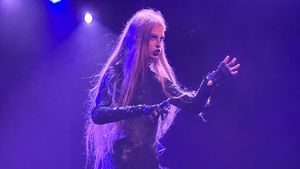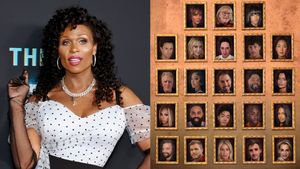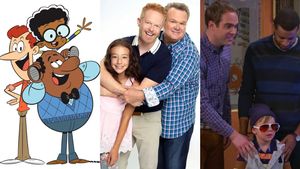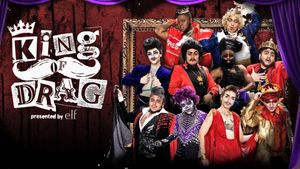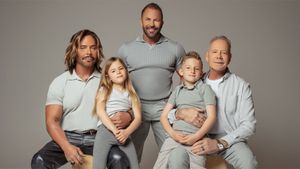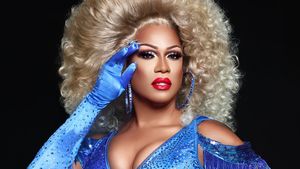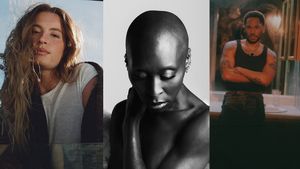Stirring her
morning coffee in Sioux Center, Iowa, lifelong Republican
Grace Droog voiced her doubts -- and those of many
evangelical voters -- about what she isn't hearing
from John McCain in this year's presidential election.
''I look for
something about his faith,'' she said. ''It's very
important, it's what our nation was founded on.''
Her pal Joan Rens
nodded; she also wants McCain to talk about his
religious beliefs. ''I wish he would so we would know how he
stands on his religious views and where his faith
lies,'' she said.
In this part of
the country -- halfway between Sioux City, Iowa, and
Sioux Falls, S.D., -- separating religion from politics is
folly. Religious conservatives here were energized by
President Bush's public declaration of faith and
handed him a landslide in 2004. With growing sway in
the state GOP, they recently captured a prominent party
leadership post.
''When they get
on fire, it's Katie bar the door,'' said Rock Rapids,
Iowa, businessman George Schneiderman, who worries that
McCain isn't generating that excitement.
''It's just kind
of a tepid response,'' he said. ''McCain really hasn't
convinced them he has the same fervor about the appointment
of judges, about the right to life.''
In the ongoing
AP-Yahoo News Poll, only 10 percent of white evangelical
Christians say they are excited by this election, compared
with 20 percent of Americans overall. A third of these
evangelicals said they were interested in the
election, but half said they were frustrated by it.
Nevertheless,
they support McCain over Obama by 62 percent to 18 percent.
Although the AP-Yahoo News Poll is of all adults, not the
smaller, more energized group of likely voters,
McCain's figures lag behind Bush's showing among white
evangelical Christian voters in the 2004 election,
when exit polls indicated 78 percent supported him.
In some parts of
Iowa, overall turnout in 2004 was 20 percentage points
higher than 2000, virtually all of it an energized Bush
vote.
A prosperous
hamlet of 6,300, Sioux Center is home to 17 churches, 13 of
them with the word ''Reformed'' in their name, a sign of a
strong evangelical presence. In 2004, 16,000 people in
the county voted, 14,000 of them for Bush.
Carl Zylstra is
president of Dordt College in Sioux Center, a small
private school that bills itself as ''what quality Christian
higher education is all about.'' Also the host of a
weekly radio talk show about politics and everything
else on the minds of folks, Zylstra hears quiet
doubts, far different from the passion Bush inspired.
''George Bush has
a very compelling personal story, a very compelling
religious experience, and in their hearts they believed he
was a man who loved the same Lord they did,'' said
Zylstra. ''They might not agree with all his policies,
but they trusted him that when the chips were down he
would do the right thing. McCain is not a man who incites
the same passion.''
Dave Mulder, a
retired teacher from Northwestern College in nearby Orange
City, another private Christian college, also knows
something about local politics and spent a stint in
the state Legislature.
''I think people
here genuinely believe that George Bush and his
Christian faith was very sincere,'' said Mulder. ''People
have said that when they talked to him, he took time
to let them know how much that Christian belief meant.
For McCain, I just don't think there's that same
enthusiasm.''
McCain has work
to do among religious conservatives, says Don Kass, a
Republican activist in nearby Plymouth County.
''He needs to
work quite a bit harder than he has to get those folks,''
said Kass. ''And I say those folks because I'm one of them.
He needs to give them something that motivates them to
get to the polls.''
Religious
conservatives are an important constituency in this swing
state that voted for Bush by 12,000 votes in 2004 and
a growing force in state Republican politics.
Republicans recently ousted Steve Roberts, a 20-year
member of the Republican National Committee, and replaced
him with Steve Scheffler, head of the Iowa Christian
Alliance.
The other RNC
seat went to Kim Lehman, head of the Iowa Right to Life
Committee, and both campaigned on forcing the party to
showcase its hard-line opposition to abortion and gay
rights. Scheffler says he backs McCain but concedes
there isn't much enthusiasm among religious
conservatives.
''It's not where
it should be, but there's potential there,'' said
Scheffler. ''I've encouraged the McCain campaign, I've told
them several times that I would be more than willing
to put together a small group of people the campaign
needs to have a dialogue with.''
The balancing act
McCain must walk nationally is firming up his
conservative base while reaching out to independents.
Scheffler warned the equation is different in Iowa and
throughout the Midwest.
''To succeed in
Iowa, it's because you have a big turnout of
self-identified evangelicals,'' said Scheffler. ''I don't
see that scenario changing.''
Randy Feenstra,
another Plymouth County activist, doesn't see these
voters turning to Democrat Barack Obama, but he worries that
they ''just won't vote.''
Top Republicans
acknowledge the problem and vow to ease concerns. On a
recent visit to Iowa, Republican National Chairman Mike
Duncan delivered a pep talk about McCain. ''For a
public figure, he's a very private man,'' Duncan said,
but he promised the campaign would offer a clearer
view of McCain as a person ''as we move through this fall.''
Sharing regular
morning coffee here with Droog and Rens, Jake Kieft, who
backed Bush with enthusiasm, shrugged his shoulders over the
campaign.
''I'm hanging on
the fence, I really am,'' Kieft said. (Mike Glover, AP)
































